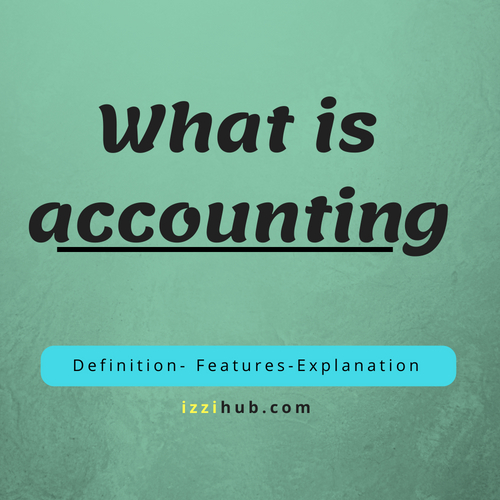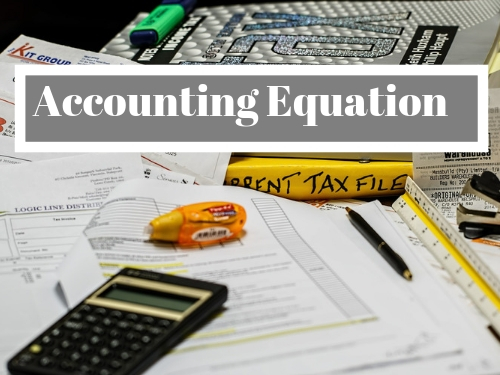According to
(AICPA) American Institute of Certified Public Accountants, “
Accounting is an art of recording, classifying and summarizing in a significant manner and in terms of money transactions and events which are in part at least of a financial character and interpreting the results thereof.”
What is an Accounting & Its Definition
According to A.W.Johnson, “Accounting may be defined as the collection compilation and systematic recording of business transactions in terms of money, the preparation of financial reports, the analysis and interpretation of these reports and the use of these reports for the information and guidance of management.”
Accounting can be defined as
bookkeeping of every business transaction having monetary value according to the rules and regulation, as per their nature of the account. Then summarize them with closing balance in every fiscal year in the shape of the prescribed and required format for internal and external users. This will helps for the decision making of management and third parties.
Accounting has a wide range, it starts by occurring the transaction to decision making on it. Three major types of accounting come into existence.
Explanation of Accounting Definition
-
Recording
The first Step of that process, start with every monetary value transaction, purely made for a business entity. It is also called bookkeeping. In this stage account maintains the books of account, like
Daybook, ledgers, Cash Registers, Vouchers etc. its depend upon the organization which system they used, whether Single Entry System Or Double Entry System. The transaction should be recorded timely after the occurrence.
• Classification
In this Stage, Golden Rules of Accountancy are followed while recording the transactions as per the nature of the account. In simple words, every transaction has at least one Debit and one Credit value with the division of equal value in both opposite natures of columns. What will be debited and what will be credit. Debit and Credit of accounts should be as per rules. This is called the Classification of a transaction. All financial and analysis reports are prepared, based on classification.
• Summarizing and Reporting
The third Stage is preparing the financial reports at the end of every fiscal year, for example, Profit and Loss Account, Balance Sheet, notes to the financial statement, cash flow stamen and statement of Shareholder Equity. Before summarizing it you should confident that all
journal Entries are free from errors and according to the debit and credit or
golden rules of accounting.
• Analyzing
It’s the last stage of accounting in which analyzed all the business data and information on based of summarized data and also final the final decisions of
a business. Management must find out its positive and negative points. Accounting helps in doing so by means of comparison. It is common practice to compare profits, cash, sales, assets, etc with each other to analyze the performance of the business.
Example for Accounting Definition.
A Business Entity (Company) has purchased assets having the value of $4000, Paid $300 as cash and $100 on credit for one week from XYZ Co dated 30 December. Company fiscal year ended on 31 Dec.
- When accountant updates the daybooks and ledgers it will be called recording of the transaction.
- $400 debited with Assets, $300 credited with cash and $100 XYZ Co. This is called classification. The account should be charged as per their chart of accounts.
- In financial reports, when accounts will be closed and balance sheet updated with closing balances of ledgers, assets will be increased with $100 and liability also with $100. Cash is also assets, so the net effect is $ 100 ($400- $300).
- Then Analysis will be made on financial reports how much increase in assets and liabilities.
Accounting and finance is a very complex subject and has many different facets to it. In large companies, the various functions will have a number of people performing them because the sheer volume of transactions would be far too great for just one accountant to handle. Usually, there will be an accounts receivable section that invoices for the goods or services that the company has sold and who will also ensure that those invoices are paid on time.
In turn, there will be the accounts payable department who will process the invoices for goods and services that the company has purchased and make sure those are paid when they fall due. There may well be separate credit and purchase ledger controllers, management accountants, tax accountants, financial accountants and at the very top of the company accounting and finance function, the chief financial officer (CFO).
Importance of Accounting
When asking the question of what is accounting, you can see that it lies at the very heart of any entity that is involved in business, be it a one-man trader or a multinational conglomerate. By law and to comply with statutory regulations and tax authorities, a company or trading individual is required to present a set of accounts that clearly state their financial position. Usually, this is done on an annual basis and large companies are also required by law to have their accounts independently verified by a firm of auditors.
The owners and or directors of a company are required to select suitable accounting policies, and then apply them consistently, make judgements and estimates that are reasonable and prudent and prepare the accounts on a going concern basis. This is so shareholders and other interested parties can be satisfied that the set of accounts the company produces are a fair and accurate view of the state of affairs of the company.
If you are considering entering the accounting and finance profession or just want to find out more about how it works, then I hope the information on this site will go some way in helping you find what you are looking for.






